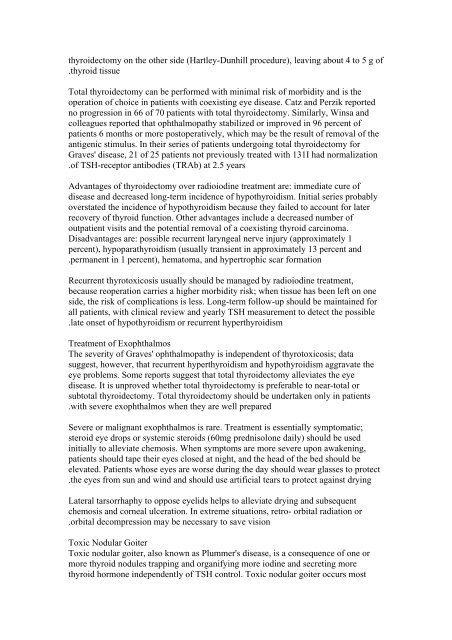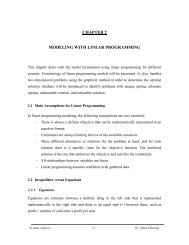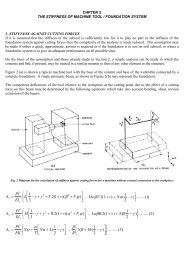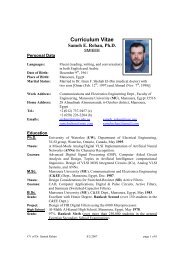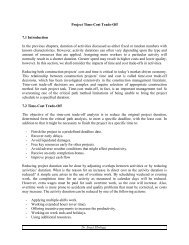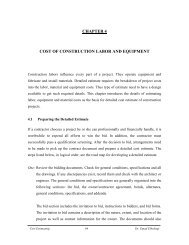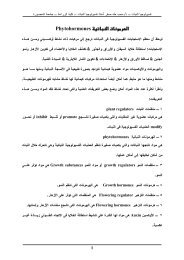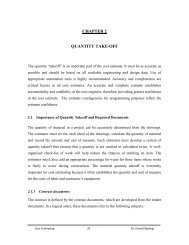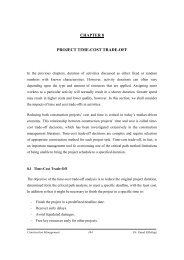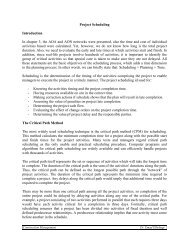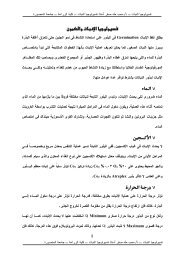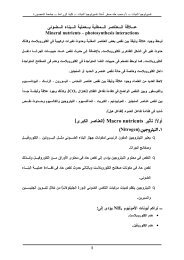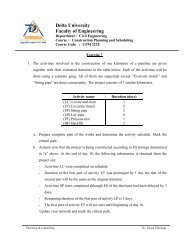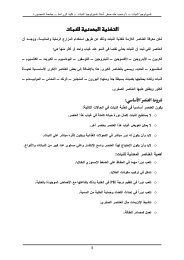Thyroid and Parathyroid
Thyroid and Parathyroid
Thyroid and Parathyroid
You also want an ePaper? Increase the reach of your titles
YUMPU automatically turns print PDFs into web optimized ePapers that Google loves.
thyroidectomy on the other side (Hartley-Dunhill procedure), leaving about 4 to 5 g of<br />
. thyroid tissue<br />
Total thyroidectomy can be performed with minimal risk of morbidity <strong>and</strong> is the<br />
operation of choice in patients with coexisting eye disease. Catz <strong>and</strong> Perzik reported<br />
no progression in 66 of 70 patients with total thyroidectomy. Similarly, Winsa <strong>and</strong><br />
colleagues reported that ophthalmopathy stabilized or improved in 96 percent of<br />
patients 6 months or more postoperatively, which may be the result of removal of the<br />
antigenic stimulus. In their series of patients undergoing total thyroidectomy for<br />
Graves' disease, 21 of 25 patients not previously treated with 131I had normalization<br />
. of TSH-receptor antibodies (TRAb) at 2.5 years<br />
Advantages of thyroidectomy over radioiodine treatment are: immediate cure of<br />
disease <strong>and</strong> decreased long-term incidence of hypothyroidism. Initial series probably<br />
overstated the incidence of hypothyroidism because they failed to account for later<br />
recovery of thyroid function. Other advantages include a decreased number of<br />
outpatient visits <strong>and</strong> the potential removal of a coexisting thyroid carcinoma.<br />
Disadvantages are: possible recurrent laryngeal nerve injury (approximately 1<br />
percent), hypoparathyroidism (usually transient in approximately 13 percent <strong>and</strong><br />
. permanent in 1 percent), hematoma, <strong>and</strong> hypertrophic scar formation<br />
Recurrent thyrotoxicosis usually should be managed by radioiodine treatment,<br />
because reoperation carries a higher morbidity risk; when tissue has been left on one<br />
side, the risk of complications is less. Long-term follow-up should be maintained for<br />
all patients, with clinical review <strong>and</strong> yearly TSH measurement to detect the possible<br />
. late onset of hypothyroidism or recurrent hyperthyroidism<br />
Treatment of Exophthalmos<br />
The severity of Graves' ophthalmopathy is independent of thyrotoxicosis; data<br />
suggest, however, that recurrent hyperthyroidism <strong>and</strong> hypothyroidism aggravate the<br />
eye problems. Some reports suggest that total thyroidectomy alleviates the eye<br />
disease. It is unproved whether total thyroidectomy is preferable to near-total or<br />
subtotal thyroidectomy. Total thyroidectomy should be undertaken only in patients<br />
. with severe exophthalmos when they are well prepared<br />
Severe or malignant exophthalmos is rare. Treatment is essentially symptomatic;<br />
steroid eye drops or systemic steroids (60mg prednisolone daily) should be used<br />
initially to alleviate chemosis. When symptoms are more severe upon awakening,<br />
patients should tape their eyes closed at night, <strong>and</strong> the head of the bed should be<br />
elevated. Patients whose eyes are worse during the day should wear glasses to protect<br />
. the eyes from sun <strong>and</strong> wind <strong>and</strong> should use artificial tears to protect against drying<br />
Lateral tarsorrhaphy to oppose eyelids helps to alleviate drying <strong>and</strong> subsequent<br />
chemosis <strong>and</strong> corneal ulceration. In extreme situations, retro- orbital radiation or<br />
. orbital decompression may be necessary to save vision<br />
Toxic Nodular Goiter<br />
Toxic nodular goiter, also known as Plummer's disease, is a consequence of one or<br />
more thyroid nodules trapping <strong>and</strong> organifying more iodine <strong>and</strong> secreting more<br />
thyroid hormone independently of TSH control. Toxic nodular goiter occurs most


